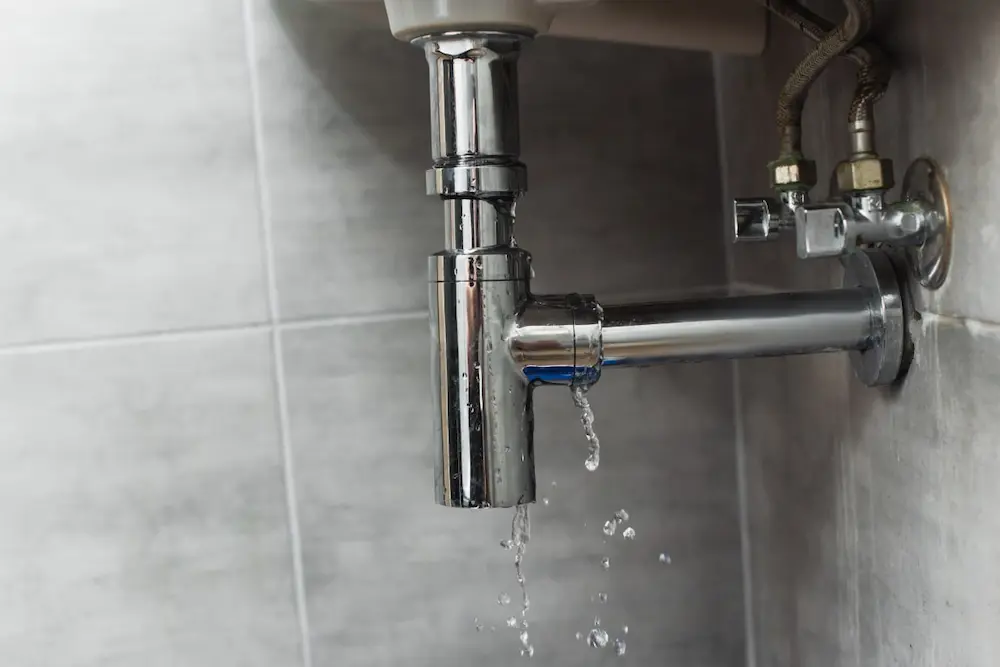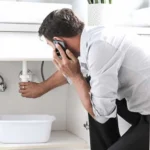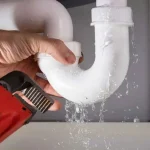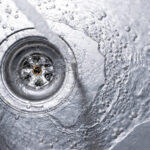A small leak might not seem like much at first. A dripping tap, a tiny damp patch on the wall, or a faint sound of running water can be easy to dismiss. However, even the smallest leak has the potential to escalate quickly, leading to costly damage, mould growth, and disruption to your home. Knowing how to act when a minor plumbing issue becomes an emergency can save you time, money, and stress.

Content
Recognising the Signs of a Leak
Many leaks start subtly before turning into a serious problem. Common early signs include:
- Persistent dripping taps
- Unexplained damp patches on walls, ceilings, or floors
- A sudden increase in water bills
- Low water pressure or unusual noises in pipes
Some leaks are hidden inside walls, under flooring, or behind appliances. These can go unnoticed for weeks, only becoming obvious when significant damage has already occurred. Staying alert to these warning signs is the first step in preventing a plumbing disaster.
Immediate Steps to Take
If you discover a leak, acting quickly can help to minimise the damage. Here are some immediate steps to take:
- Shut off the water supply – Locate the stopcock in your home and turn it off to prevent more water from escaping. Knowing where this valve is located before an emergency occurs is essential.
- Contain the water – Use towels, buckets, or containers to catch leaking water. This can help to protect flooring and furniture.
- Turn off electricity if necessary – If the leak is near electrical outlets or wiring, switch off the electricity at the mains to avoid the risk of electrocution.
- Apply a temporary fix – In some cases, applying plumber’s tape, a pipe repair clamp, or sealant can temporarily slow the leak until professional help arrives.
When DIY Isn’t Enough
While minor leaks such as a dripping tap can sometimes be handled with a simple washer replacement, larger or hidden leaks should not be taken lightly. Attempting to fix a serious leak without the right knowledge or tools can make the situation worse. Common mistakes include over-tightening joints, using the wrong sealants, or failing to address the root cause of the problem.
DIY repairs may hold temporarily, but they rarely provide a long-term solution. Knowing when to stop and call in professionals is key to protecting your property.
Calling the Professionals
This is where emergency plumbers become indispensable. Available 24/7, these professionals are trained to handle urgent plumbing issues such as burst pipes, overflowing toilets, or severe leaks. They have the right tools, expertise, and experience to identify the source of the leak and fix it properly.
Professional plumbers don’t just repair the visible issue – they also check for underlying problems that could cause repeat incidents. By contacting a trusted emergency service promptly, you can prevent extensive water damage and reduce repair costs in the long run.
The Cost of Delay
One of the biggest mistakes homeowners make is underestimating how quickly a leak can escalate. Water damage can spread rapidly, seeping into walls, ceilings, and flooring. This can lead to warped wood, weakened plaster, and structural damage. In addition, damp conditions create the perfect environment for mould growth, which not only damages property but also poses health risks.
The financial consequences of delay can be severe. What starts as a small leak may end up costing thousands in repairs, insurance claims, and even property devaluation. Acting quickly is always the most cost-effective approach.
Prevention and Maintenance Tips
While not every leak can be prevented, regular maintenance can significantly reduce the risks. Here are some practical tips:
- Schedule regular inspections – Have a qualified plumber check your system periodically for early signs of wear and tear.
- Insulate pipes in winter – Frozen pipes are a common cause of bursts. Proper insulation helps prevent them from cracking.
- Monitor water pressure – Excessive pressure can strain pipes and joints, increasing the likelihood of leaks.
- Check appliances and fittings – Washing machines, dishwashers, and boilers are frequent sources of leaks. Inspect hoses and connections regularly.
- Be proactive – Fix dripping taps and small leaks promptly to avoid them developing into larger problems.
Conclusion
A small leak may seem harmless at first glance, but it can quickly spiral into a major issue if ignored. Recognising the early signs, taking immediate action, and calling on professional help are essential steps to protect your home. Emergency plumbers provide the expertise needed to handle urgent situations, ensuring leaks are dealt with safely and effectively.
By staying vigilant and practising good plumbing maintenance, you can prevent many leaks from occurring in the first place. And when emergencies do strike, you’ll be prepared to act swiftly, safeguarding both your property and peace of mind.

Melissa Day is a dedicated home blogger who has been blogging for over six years. She covers everything home related. Melissa also loves writing posts about her travels to Europe with her husband and two children.










